
THREAD: turbulent times for stocks interest...
LifeLine™ Media threads use our sophisticated algorithms to construct a thread around any topic you want, providing you with a detailed timeline, analysis, and related articles.
News Timeline


ROWLING’S Triumph: UK Supreme Court Delivers Stunning WIN For Women’S Rights
— The UK Supreme Court just ruled that only those born female are legally recognized as women. This means transgender women are not included in the legal definition of “woman.” Author JK Rowling celebrated the news on X, sharing a photo with a drink and cigar, writing, “I love it when a plan comes together. #SupremeCourt #WomensRights.”
Rowling thanked For Women Scotland, the group behind the case. She joked her husband was celebrating like it was Victory in Europe Day, posting, “Neil says it’s TERF VE Day.” For Women Scotland called the ruling a big win for women’s rights and children’s safety.
The decision has sparked heated debate online. Supporters say this protects biological women under law. Critics claim it leaves out transgender people.
Rowling has stood firm on this issue for years and still faces backlash from left-wing activists. She believes keeping clear definitions is key to protecting spaces meant for women only.;
UK SUPREME COURT Delivers Powerful WIN for Women’S Spaces
— The UK Supreme Court has made a strong ruling: women-only spaces like bathrooms, hospital wards, and sports teams must be kept for those born biologically female. The court said single-sex services cannot include biological males, no matter their gender identity or legal paperwork. The Equality and Human Rights Commission will update its public guidelines by summer to match this decision. Transgender activists are upset, claiming the ruling harms their rights. Still, the court stressed that anti-discrimination laws protect transgender people but do not change what it means to be biologically female. This case started in Scotland over a law that said half of public board members must be women. The question was whether transgender women with legal certificates should count as women for these quotas. The court decided only biological sex matters under the Equality Act’s definition of “woman.” There are about 66 million people in England, Scotland, and Wales. Of those, around 116,000 identify as transgender. Only about 8,500 have received gender recognition certificates since the process began.

PUTIN’S Shocking Praise for Elon Musk Sparks Global Buzz
— Russian President Vladimir Putin surprised many by comparing Elon Musk to Soviet space legend Sergei Korolev. Speaking with university students, Putin said Musk “raves about Mars” and called him a rare figure who makes the impossible happen. He linked Musk’s bold dreams to Korolev’s historic achievements in space.
Putin admitted that reaching Mars seems far off today but believes ideas like Musk’s can come true over time. He reminded listeners that Korolev, once doubted, led the Soviets to major victories in space exploration after years of struggle under Stalin.
Sergei Korolev was kept secret during his life but became a hero after his death for launching the first satellite and human into orbit. Putin used this story to show how visionaries can shape history, even if people doubt them at first.
Kirill Dmitriev, head of Russia’s wealth fund, added that missions to Mars are “getting more real.” Dmitriev recently visited Washington D.C., meeting with Trump officials after U.S. sanctions were lifted for his trip — a sign of possible new talks between Russia and America.;

TOURISM INDUSTRY Braces for ‘Trump Slump’ Fears
— The U.S. TOURISM industry, worth $2.36 trillion, is under pressure from economic and political uncertainties. Concerns over tariffs and currency fluctuations are making foreign visitors uneasy. This turbulence could affect the world’s strongest travel market.
American Ring Travel, a California-based tour operator, reports a slowdown in bookings from Germany. This drop followed Elon Musk’s endorsement of a far-right party in Germany’s election, showing broader worries impacting international travel to the U.S.
Industry insiders humorously compare their uncertainty to Batman and King Kong’s fictional adventures. Their feelings mirror those of Times Square’s superhero-themed businesses facing similar struggles last week. Optimism remains cautious as stakeholders navigate these unpredictable times.
RUSSIA’S Shocking Attack on Ukraine: EU Calls for Tough Sanctions
— European leaders are outraged by Russia’s missile attack on Sumy, Ukraine, which killed 34 and injured 117. The strike happened during Palm Sunday celebrations, marking the second major civilian tragedy in just over a week.
Polish Foreign Minister Radek Sikorski slammed Russia’s actions as mocking U.S.-led ceasefire efforts. He urged President Trump to see Russia’s blatant disregard for peace initiatives.
Finnish Foreign Minister Elina Valtonen noted the attack followed talks between Trump’s envoy and Putin, showing Russia’s indifference to peace and human life. Lithuania called using cluster munitions a war crime.
French Foreign Minister Jean-Noël Barrot demanded strict EU sanctions against Russia to cripple its economy and stop its war efforts, stressing Putin’s refusal to end hostilities willingly.

— Prince Harry surprises Ukraine with visit to war victims The Duke of Sussex met with injured veterans as part of his ongoing support for those affected by conflict, according to a spokesperson

— Prince Harry surprises war victims in Ukraine The Duke of Sussex met with those affected by the conflict during his visit, focusing on support for wounded veterans
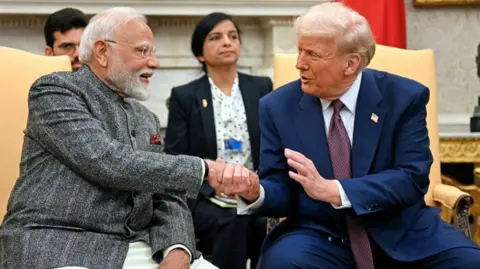
UK-INDIA TRADE Deal: A Game-Changer for Economic Growth
— The UK and India have reached a big step in their free trade deal, agreeing on 90% of the terms. This includes major tariff cuts on key UK exports like scotch whisky and cars. The agreement is set to greatly boost economic ties between the two countries.
RUSSIAN MINISTER BREAKS SANCTIONS: A Bold Violation
Former Russian minister Dmitry Ovsiannikov was found guilty of breaking UK sanctions by moving money into a British bank account. This is the first conviction under the Russia Sanctions Regulations in the UK. It shows how serious the UK is about enforcing its sanctions rules strictly.
UK NEEDS STRONGER EUROPEAN TRADE LINKS, Says Chancellor
Chancellor Rachel Reeves says improving trade with Europe is vital for post-Brexit Britain, especially with US tariff issues ongoing. Strengthening these ties could help ease some economic problems Britain faces due to global trade tensions. Her call highlights why strategic partnerships are needed in today’s changing world.

IRS TECH OVERHAUL Promises BIG Changes for Taxpayers
— The IRS is set to roll out its Technical Roadmapping Initiative, aiming to modernize and streamline its tech systems. This move seeks to improve taxpayer services, enhance data security, and boost efficiency. A team of skilled IRS engineers will work on creating efficient systems for American taxpayers.
A seminar called the IRS Roadmapping Kickoff will launch this week, featuring strategy sessions led by these engineers. They plan to update the agency’s outdated tech infrastructure that’s been around for decades. Central to this effort is a unified API system for secure communication and better management of taxpayer info.
This modernization aligns with President Donald Trump’s commitment to transparency and responsible use of taxpayer resources. A senior tech executive at the IRS highlighted new features like a “Where is my refund?” tool that could help Americans track their federal tax returns more easily.
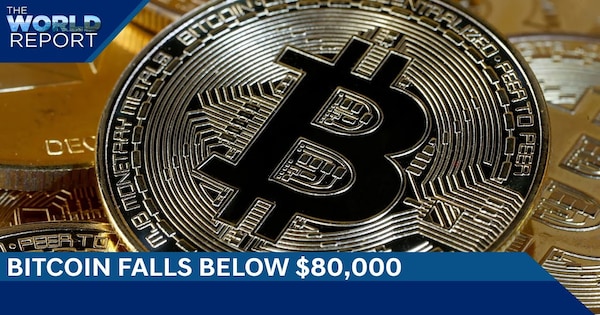
MARKET PANIC: Bitcoin and Stocks Plummet in US Tariff Chaos
— Bitcoin dropped below $80,000 on Sunday, falling over 3% in just two hours. This decline happened alongside major losses in U.S. stock markets. The S&P 500 and Nasdaq Composite both closed nearly 6% lower on April 4. Analyst Holger Zschaepitz noted the stock market lost $8.2 trillion, surpassing losses from the worst week of the 2008 financial crisis.
The market chaos comes from recent U.S. tariffs that have sparked widespread sell-offs across many sectors. Despite this turmoil, some investors see potential buying opportunities as stocks are now trading at historically low valuations of 15 times future earnings projections.
Jim Cramer has warned this could be just the start of a bigger downturn for the S&P 500, predicting a further meltdown of up to 20%. As of Sunday night, S&P futures were down about 4%. Global stocks have already lost $7.46 trillion since April 2nd and may exceed $10 trillion if recent sell-offs continue to unfold.;

UK’S BOLD Defense Strategy: REASSURANCE Force for Ukraine Unveiled
— The UK’s Ministry of Defense is crafting a “reassurance force” to bolster Ukraine against Russian aggression. Admiral Antony Radakin stressed enhancing the Ukrainian army’s strength to deter future threats. Talks this weekend aim to set the stage for further discussions in Brussels with defense ministers and the Ukraine Defense Contact Group on Friday.
Britain supports a European-led peacekeeping force in Ukraine, relying on U.S. backing to counter potential Russian reprisals effectively. The proposed force could include 10,000 to 30,000 troops — a significant pledge from nations rebuilding post-Cold War militaries. Former President Trump has consistently pushed for a ceasefire and opposed Ukraine joining NATO, pausing military aid during his tenure.
Meanwhile, the death toll from a Russian missile strike in Kryvyi Rih has risen to 18, including nine children, according to regional Governor Serhii Lysak. The attack injured 72 people — half remain hospitalized with serious injuries affecting 17 critically. Oleksandr Vilkul of the city’s defense council condemned the attack: “There can never be forgiveness for this.”

— Trump faces backlash over tariff policies President Trump is under fire as his recent tariffs trigger market sell-offs, yet he remains firm in his stance, advocating for interest rate cuts to bolster the economy

— Trump administration fires NSA director The Trump administration has dismissed both the director and deputy director of the National Security Agency amid a restructuring of its security apparatus, with reasons for the firings yet to be disclosed
— Judge orders Trump administration to RETURN deported man A federal judge has ruled that a Guatemalan immigrant, who was granted asylum and lived in the US for over a decade, must be reinstated after his deportation raised legal concerns
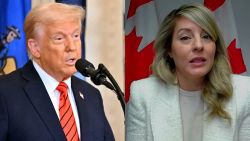
NO BREAKING News: What This Silence Means for America
— The search for fresh breaking news in the United States has come up empty. Current events are still unfolding within existing timelines.
This pause in new information suggests a temporary lull in major newsworthy events. However, this could change as updates emerge.
Readers should stay informed and check back for any potential updates or emerging stories that might arise.

TRUMP’S Trade Policy Shocks: US Stocks Plunge in Market Chaos
— The EURO has surged to a six-month high as investors react to the latest U.S. tariff announcements. Meanwhile, the Australian dollar has taken a hit, reflecting global market volatility. These currency shifts highlight ongoing economic uncertainties fueled by international trade tensions.
U.S. stock futures have plummeted after China’s retaliatory tariffs on American goods, marking another phase in the global trade conflict. The Dow Jones dropped 1,679 points, causing widespread concern among investors and financial strategists who urge calm and strategic planning during these turbulent times.
Bitcoin ETFs saw nearly $100 million in net outflows as markets reacted sharply to tariff news from the Trump administration. This exodus underscores investor anxiety and uncertainty about future economic conditions amid escalating trade disputes with China.
Goldman Sachs has revised its oil price forecasts downward due to fears of a potential recession and increased supply from OPEC+. Gold prices have steadied after an initial selloff triggered by aggressive U.S. tariff policies, indicating cautious optimism among investors seeking safe-haven assets in uncertain times.

GOLD PRICES Surge: Brace for Economic Shockwaves from New US Tariffs
— Gold prices have surged as investors brace for the U.S. “Liberation Day” tariff announcement. This has led to cautious trading, with businesses gearing up for possible economic shifts.
The jump in gold signals a move towards safety amid uncertainty over trade relations and policies under the current administration. Many companies are rethinking strategies due to potential tariff impacts.
Analysts worry about major economic fallout, especially for export-reliant industries. The business community is closely watching international reactions and possible retaliatory measures that could escalate global trade tensions.

UFC and META Unite: A Game-Changing Move for Fans
— UFC has unveiled a multiyear partnership with META to boost fan engagement. This collaboration will use Meta’s advanced technologies to connect with millions of UFC fans around the globe.
The plan is to create interactive experiences, letting fans dive deeper into the sport. UFC announced this at a Las Vegas press event, highlighting its dedication to innovation.
This partnership is a major step in UFC’s strategy to weave cutting-edge technology into its business model. The collaboration aims to set new standards for fan interaction in sports entertainment.
CANADIAN PRIDE Surge: US Businesses Face Tough Times
— The “Buy Canadian” movement is gaining steam, impacting U.S. companies looking to expand into Canada. Demeter Fragrances, a Pennsylvania perfume maker, stopped its expansion plans due to changing Canadian tastes. CEO Mark Crames noted a growing dislike for American products in Canada.
This trend isn’t just about perfumes but spans different sectors like drinks and citrus fruits from the U.S. Canadian businesses are thriving as local goods win over consumers. Jason McAllister of Irving Personal Care reported their Canadian-made diapers’ weekly shipments have quadrupled, showing this shift in buyer behavior.
The movement worries U.S.-based consumer companies that depended on the Canadian market for growth chances. Executives are now rethinking strategies as they face more difficulties entering the Canadian retail space amid rising protectionist feelings.

“GOLD Prices SOAR: A Safe-Haven in Chaotic Times”
— Gold prices skyrocketed to a record $3,000 an ounce on Friday. Investors are anxious over President Trump’s tariffs and global tensions. Viktoria Kuszak from Sucden Financial highlighted Russia’s rejection of a US ceasefire proposal in Ukraine as a key factor adding to the instability.
Gold’s rise proves its lasting role as a safe-haven asset during uncertain times. It first topped $1,000 after the financial crisis and hit $2,000 during COVID-19. Now, it reaches new heights amid trade wars and global unrest.
The gold surge mirrors broader financial market shifts influenced by geopolitical factors. Meanwhile, the crypto market is on edge awaiting a crucial ruling in the Ripple-SEC case that could change digital asset regulations worldwide. This decision may set new standards for future finance tech developments.

METAL STOCKS Soar: Investors Cheer Global Demand Boom
— METAL stocks like Tata Steel, Hindalco, and Vedanta are seeing a rise of up to 4% in share prices. This jump is due to favorable global market conditions and increased demand for metals. Investors feel hopeful about the sector’s future.
Tata Steel shares have climbed about 4%, thanks to positive quarterly results and higher production forecasts. Hindalco gains from rising aluminum prices and a brighter outlook as global demand increases.
Vedanta’s shares are also climbing because of strong performance and smart strategies to boost production efficiency. These companies’ gains show broader economic conditions that favor raw material demand.
Market experts point to international trade dynamics, better supply chains, and more infrastructure spending worldwide for this bullish trend. These factors boost investor confidence in METAL stocks amid growing global need for raw materials.

BANK of England’s BOLD Rate CUT: What It Means for YOU
— The Bank of England plans to cut interest rates for the third time in six months, even though inflation is still above target. Economists expect a quarter-point reduction, lowering the rate to 4.50%. This move aims to tackle economic stagnation and job losses.
Interest rates affect mortgage and loan costs and influence savings returns from banks. Financial markets are closely watching the bank’s forecasts and Governor Andrew Bailey’s remarks during his press conference.
Andrew Wishart from Berenberg Bank says urgent action is needed due to economic stagnation. The Monetary Policy Committee targets a 2% inflation rate over the next few years, despite current inflation at 2.5%.
Inflation recently dropped unexpectedly to 2.5%, mainly because of easing price pressures in services, which dominate the U.K.'s economy. Although short-term rises are expected due to business tax hikes by the Labour government, economists predict a downward trend towards target levels, supporting further rate cuts.

UPS STOCKS Plummet: Amazon Partnership Slashed, Investors Shocked
— United Parcel Service Inc. (UPS) shares have dropped sharply after announcing a major cut in its business dealings with Amazon.com Inc. UPS plans to reduce its low-margin Amazon business by half, surprising analysts and impacting the company’s revenue projections. Daniel Imbro from Stephens Inc. noted the unexpected nature of this rapid shift in strategy.
The company has projected $89 billion in revenue for 2025, falling short of analysts’ expectations of $94.9 billion, following a reported $91.1 billion for 2024. UPS is focusing on higher-margin sectors like healthcare, aiming for $20 billion in revenue from this segment by 2026 as it raises prices and implements surcharges to offset losses from Amazon’s reduced contribution.
Amazon accounted for 11.8% of UPS’s revenue last year, making the decision to slash this partnership significant amid weak demand recovery for parcel services this year. This strategic pivot highlights UPS’s efforts to stabilize its financial outlook by prioritizing more profitable ventures over volume-driven partnerships with lower margins like Amazon’s delivery services.;

CHINA’S AI Threat: Tech Stocks in Danger of $1 Trillion Wipeout
— Chinese AI startup DeepSeek has shaken global tech stocks, sparking fears about America’s technological advantage. Investors worry about a potential $1 trillion loss in tech value due to rising foreign competition.
The drop in tech shares shows growing concern over the competitive landscape. Major indices have fallen, urging investors to be cautious as the situation develops.
This happens amid wider talks on global trade and economic competitiveness, especially in tech-heavy areas. Experts recommend reassessing portfolios, favoring stable investments over risky tech stocks.
Market analysts emphasize watching these changes closely as they could affect market stability and growth prospects in the technology sector moving forward.
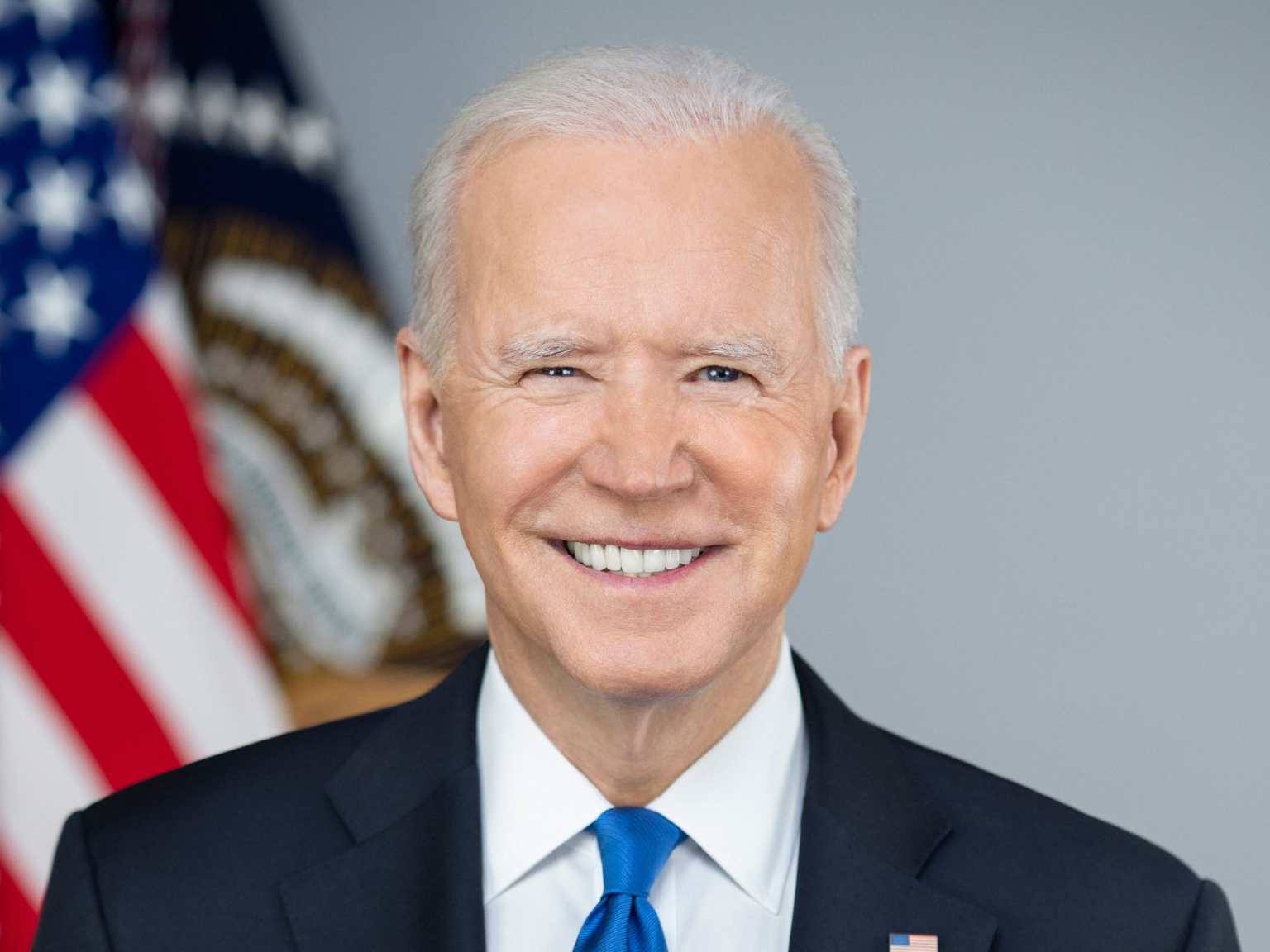
Biden’s BORDER Policy SHOCKS Americans: Crime Rates Soar
— President Biden’s border policy has led to a surge in illegal crossings. Many Americans are worried about the rising crime rates linked to this influx. Local communities are feeling the impact, and some residents say they no longer feel safe in their own neighborhoods.
Critics argue that Biden’s approach is too lenient and lacks proper enforcement. They believe this has encouraged more people to cross illegally, putting a strain on resources and law enforcement.
Supporters of stricter border control point out that crime rates have increased in areas with high numbers of illegal immigrants. They call for immediate action to secure the border and protect American citizens from further harm.
The debate over immigration policy continues, but one thing is clear: many Americans are deeply concerned about their safety and the future of their communities under current policies.
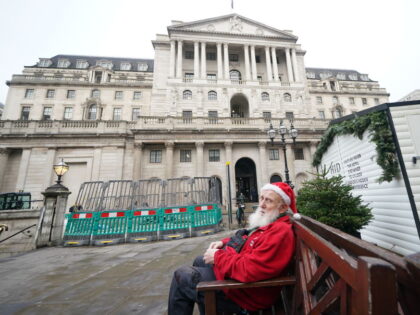
UK INFLATION TUMBLES to 39%: Central Bank May Slash Rates Sooner Than Predicted
— The Office for National Statistics (ONS) recently announced a surprising drop in UK inflation to 3.9% in November, a decrease from the previous month’s 4.6%. This dip, larger than what financial markets had forecasted, marks the lowest inflation level since September 2021.
This decline is primarily attributed to falling fuel and food prices according to the ONS. However, despite this optimistic news, the Bank of England’s primary interest rate remains at a staggering high of 5.25%, not seen for over a decade and a half.
Governor Andrew Bailey hinted that this stringent interest rate policy might continue for some time. Yet Samuel Tombs, chief U.K economist at Pantheon Macroeconomics suggests an alternative view — that this sharp fall in inflation could trigger an earlier-than-expected cut in interest rates; perhaps as early as the first half of next year.
While elevated interest rates initially helped curb inflation sparked by supply chain disruptions and Russia’s invasion of Ukraine, they have also put pressure on consumer spending and slowed economic growth. As such there are growing worries that maintaining high rates could inflict unnecessary damage on the economy.

Rishi Sunak’s TURBULENT First Year: Is History About to REPEAT Itself for the Conservatives?
— Rishi Sunak, UK Prime Minister, has marked his first year in office amidst a storm of international conflicts and domestic challenges. His Conservative Party is haunted by the ghost of 1996, when they were dethroned by the Labour Party after ruling for more than a decade.
Recent opinion polls reveal that the Conservatives are lagging 15 to 20 points behind Labour. This gap has remained steady throughout Sunak’s term. An Ipsos poll showed that a whopping 65% of respondents felt the Conservatives did not deserve another term, while merely 19% believed they did.
The ongoing Israel-Hamas conflict and Russia’s war in Ukraine have added layers of complexity to Sunak’s situation. Despite acknowledging his challenging year and vowing to continue serving hardworking families nationwide, there are widespread fears these hurdles may trigger another Conservative downfall.
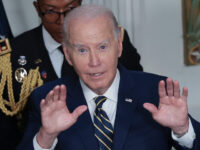
PEACE at RISK: Biden’s Push for Palestinian Consulate Jeopardizes Israel-Saudi Talks
— Last month, President Joe Biden and Israeli Prime Minister Benjamin Netanyahu held a meeting. The focus was on encouraging peace talks between Israel and Saudi Arabia. Notably, these discussions did not necessitate the establishment of a Palestinian state — a significant shift in Middle East policy. Crown Prince Mohamed bin Salman of Saudi Arabia also appeared to ease his position on the Palestine issue.
However, recent reports suggest that the Biden administration may be jeopardizing this potential peace accord. They are insisting on establishing a new Palestinian consulate in Jerusalem. This move could effectively split Jerusalem between Israel and Palestine, overturning policies set by President Donald Trump and breaking bipartisan commitments to keep the city united.
Israeli news outlet Israel Hayom has reported growing frustration among Israeli and Saudi officials with Washington’s overemphasis on concessions for Palestinians. Insiders familiar with the ongoing negotiations suggest this focus is impeding potential progress.
The primary hurdle seems to be defining the specifics of a U.S.-Saudi defense agreement. This includes whether nuclear enrichment will be allowed on Saudi soil — an aspect that Israel appears willing to accept for comprehensive peace.
SHIFTING ALLIANCES: Slovakia’s Pro-Russian Frontrunner Pledges to Reverse Support for Ukraine
— Robert Fico, a former prime minister of Slovakia, is currently leading the race for the upcoming Sept. 30 election. Known for his pro-Russian and anti-American views, Fico has pledged to withdraw Slovakia’s support for Ukraine if he regains power. His party, Smer, is anticipated to triumph in the early parliamentary election. This could pose a challenge to both the European Union and NATO.
Fico’s potential comeback reflects a broader trend in Europe where populist parties skeptical of intervention in Ukraine are gaining momentum. Countries such as Germany, France, Spain and Hungary have witnessed significant backing for these parties which could sway public sentiment away from Kyiv and towards Moscow.
Fico disputes EU sanctions on Russia and doubts Ukraine’s military strength against Russian forces. He intends to leverage Slovakia’s NATO membership as a barrier against Ukraine joining the alliance. This shift could steer Slovakia off its democratic path following Hungary under Prime Minister Viktor Orban or Poland under the Law and Justice party.
Public faith in liberal democracy has seen more decline in Slovakia compared to other regions that broke free from Soviet control years ago. A recent survey disclosed that over half of Slovak respondents blame either the West or Ukraine for the war while an equal percentage perceive America as a security threat.
FIRST Bolsonaro Backer JAILED: Brazilian Patriot’s Shocking 17-Year Sentence for Government Office Siege
— Aécio Lúcio Costa Pereira, a staunch advocate of Brazil’s ex-President Jair Bolsonaro, has been slapped with a 17-year prison term by the nation’s Supreme Court. This 51-year-old is the inaugural convict from the January 8 uprising where he, along with others, allegedly tried to reinstate Bolsonaro in power by storming high-ranking government offices.
Pereira was spotted on Senate footage donning a shirt that endorsed a military coup and filming himself commending others who had breached the building. He was convicted on five charges: criminal alliance; instigating a coup; violent assault on legal order; aggravated damage; and destruction of public property.
The rioters were voicing their dissent against Bolsonaro’s loss to leftist Luiz Inácio Lula da Silva. The inauguration of da Silva happened just one week prior to this revolt. These pro-Bolsonaro protesters wreaked havoc in Congress buildings, the Supreme Court, and presidential palace by circumventing security barriers, shattering windows and breaking into all three largely empty edifices over that weekend.
Despite Pereira’s insistence that he partook in an unarmed peaceful protest, eight out of eleven justices disagreed with him. However, two justices appointed by Bol
CHINA’s MILITARY Might on Display: Taiwan Braces for Intensifying Threats
— China is consistently fortifying its military stations along the coast facing Taiwan, says a report from Taiwan’s Defense Ministry. This development coincides with Beijing escalating its military activities around the territory it claims. In response, Taiwan pledges to strengthen its defenses and keep a close eye on Chinese operations.
In just one day, 22 Chinese aircraft and 20 warships were detected near the island by Taiwan’s Defense Ministry. This is perceived as part of Beijing’s ongoing intimidation campaign against the self-governed island. China has not dismissed using force to integrate Taiwan with mainland China.
Maj. Gen. Huang Wen-Chi from Taiwan’s Defense Ministry emphasized that China is aggressively augmenting its weapons and constantly modernizing crucial coastal military bases. Three airfields in China’s Fujian province — Longtian, Huian, and Zhangzhou — have recently been enlarged.
The surge in Chinese military activity comes after recent challenges to Beijing’s territorial claims by US and Canadian warships navigating through the Taiwan Strait. On Monday, a naval formation led by China’s aircraft carrier Shandong sailed about 70 miles southeast of Taiwan for drills simulating various attacks.
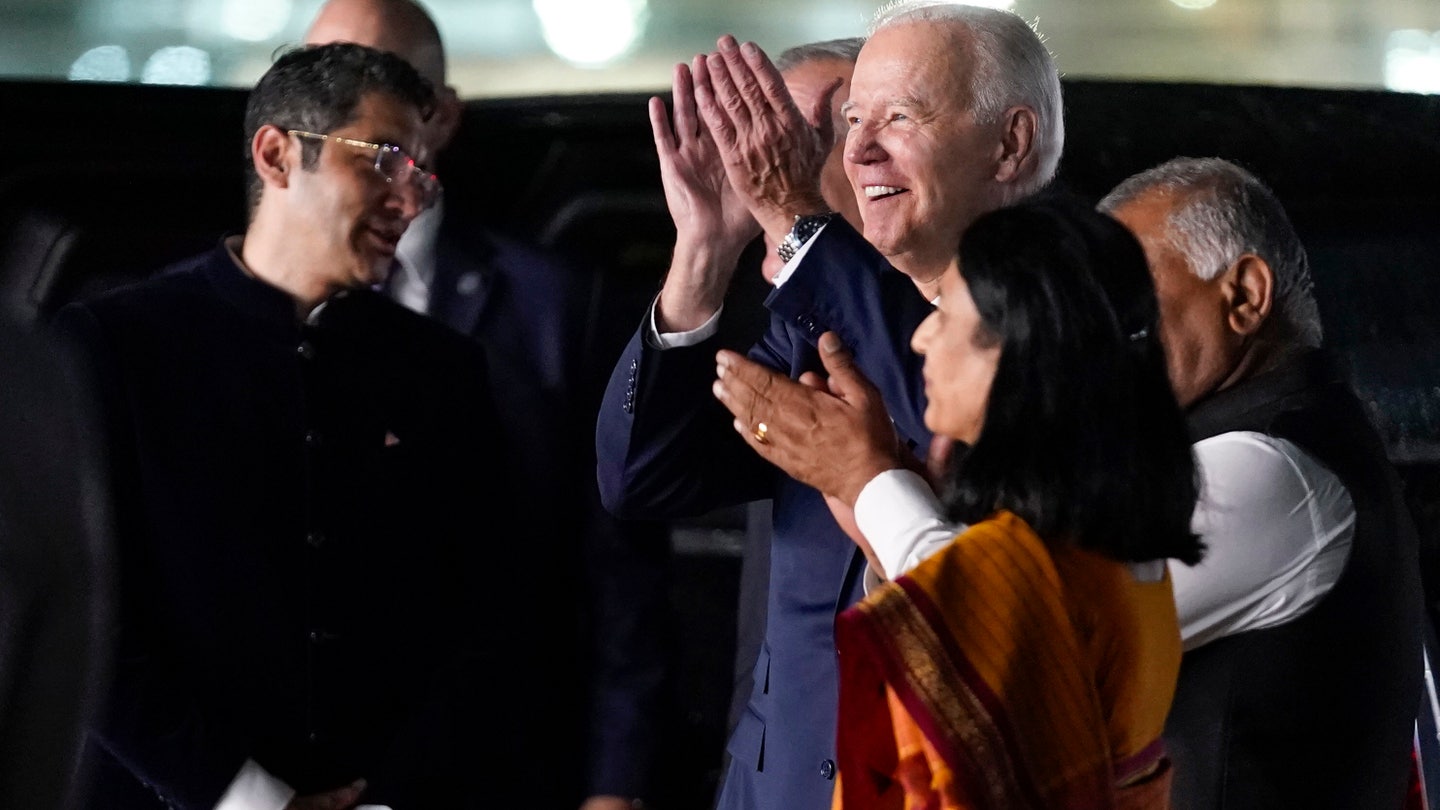
INDIA’S G-20 Summit: A Golden Opportunity for US to Reclaim Global Supremacy
— India is preparing to host its inaugural G-20 summit in New Delhi on September 9. This important event gathers leaders from the world’s most powerful economies. These nations represent a staggering 85% of the world’s GDP, 75% of all international trade, and two-thirds of the global population.
Elaine Dezenski, a representative from the Foundation for Defense of Democracies, views this as a golden chance for America to reclaim its position as a global leader. She stressed the importance of fostering transparency, development and open trade rooted in democratic rules and principles.
Yet, Russia’s aggressive actions in Ukraine pose a significant challenge likely to cause division among attendees. Western nations supporting Ukraine may find themselves at odds with countries like India that maintain a more neutral stance. Jake Sullivan, National Security Advisor, underscored that Russia’s war has inflicted severe social and economic damage on less affluent countries.
Despite unanimous condemnation at last year’s Bali summit declaration over Ukraine’s situation, disagreements persist within the G-20 group.

UK’s NHS to OFFER Revolutionary Cancer Treatment Injection, Cutting Treatment Times by 75%
— Britain’s NHS will be the first globally to provide a cancer-treating injection, potentially reducing treatment times by up to 75%. The Medicines and Healthcare products Regulatory Agency (MHRA) approved the use of the immunotherapy, atezolizumab, for hundreds of eligible patients in England.
The injection, known as Tecentriq, will be administered under the skin, freeing up more time for cancer teams. “This approval will enable our teams to treat more patients throughout the day,” said Dr. Alexander Martin, a consultant oncologist at West Suffolk NHS Foundation Trust.
Tecentriq, typically given intravenously, often takes around 30 minutes to an hour to administer. The new method takes approximately seven minutes, said Marius Scholtz, Medical Director at Roche Products Limited.
Wages SURGE at Historic Rate With Prospect of Further Interest Rate Hikes
— From April to June, wages soared by a record 7.8%, marking the highest annual growth since 2001. This unexpected spike has many predicting the Bank of England will hike interest rates to counter rising inflation, which currently sits at 7.9%.

Video
ANTIBIOTIC Resistance THREAT: A Deadly Crisis for Our Children
— A recent study reveals over three million children died in 2022 from antibiotic-resistant infections. This alarming trend shows bacteria evolving to resist known antibiotics, turning treatable infections deadly. Southeast Asia and Africa are the hardest hit, with 752,000 and 659,000 child deaths reported respectively.
The misuse and over-prescription of antibiotics are primary causes of this crisis. In Southeast Asia, the use of “Watch” group antibiotics increased by 160% between 2019 and 2021. Experts warn that this dangerous trend demands urgent global action to address antimicrobial resistance (AMR).
The World Health Organization (WHO) identifies AMR as a severe public health threat. Experts call for stricter regulations on antibiotic prescriptions and investment in new drug development. However, solutions remain complex as the issue spans human health, agriculture, and environmental management.
Without decisive intervention, society risks returning to a pre-antibiotic era where common infections become fatal again. The study urges immediate multinational cooperation to prevent untreatable infections from threatening vulnerable populations worldwide, especially children.
More Videos
Invalid Query
The keyword entered was invalid, or we couldn't gather enough relevant information to construct a thread. Try checking the spelling or entering a broader search term. Often simple one-word terms are enough for our algorithms to build a detailed thread on the topic. Longer multi-word terms will refine the search but create a narrower information thread.
Politics
The latest uncensored news and conservative opinions in US, UK, and global politics.
get the latestLaw
In-depth legal analysis of the latest trials and crime stories from around the world.
get the latest